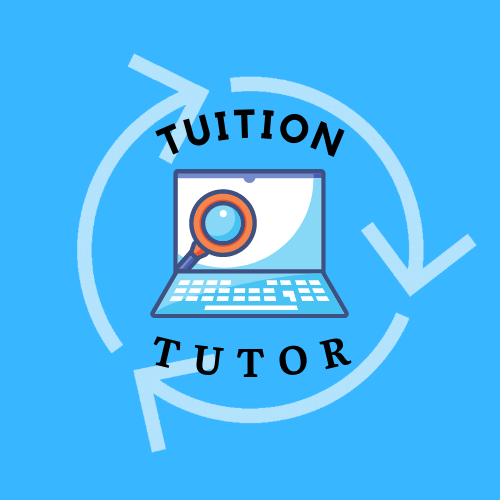Preparing for board exams can often feel like climbing a mountain for CBSE and ICSE students. With subjects to cover, sample papers to solve, and the constant pressure to perform well, it’s easy to feel overwhelmed. However, students who develop effective study habits early on not only reduce stress but also enhance their learning efficiency and retention power. Board exams are not just a test of knowledge. Board exams are also a test of discipline, consistency, and smart strategy. Let’s explore how students can build habits that make studying more productive, less stressful, and ultimately more rewarding.
Understanding the Importance of a Structured Study Routine
The first step towards success in board exams is creating a realistic study timetable. A structured routine brings order to what otherwise feels like chaos. Instead of studying for endless hours, it’s more effective to plan shorter, focused sessions. For instance, a 45–50 minute study slot followed by a 10-minute break helps the brain recharge and improves concentration. Consistency matters more than duration; a few productive hours daily can achieve far better results than last-minute cramming. When preparing your schedule, prioritize subjects based on your comfort level. Many students make the mistake of starting with subjects they enjoy, leaving difficult topics for later. It’s wiser to begin with challenging subjects like Mathematics or Physics when your mind is fresh, and switch to lighter ones like English or Social Science later in the day. Rotating subjects helps maintain interest and prevents burnout.
Setting Clear and Achievable Goals
Every study session should have a clear goal. Rather than vague plans like “study Science today,” specify what you intend to complete. For example, “finish the chapter on Magnetic Effects of Electric Current and revise all diagrams.” Breaking big tasks into smaller, achievable milestones gives a sense of progress and keeps motivation high. At the end of each day, take five minutes to reflect on what you accomplished. Did you meet your goals? Were there distractions that slowed you down? Self-assessment is a small but powerful habit that helps you improve with every passing day.
Making Notes that Actually Work
Good notes are not just summaries but, they are memory boosters. When revising for board exams, handwritten notes work wonders because the act of writing helps information stick in the brain. Avoid copying directly from the textbook; instead, write in your own words. Use flowcharts, keywords, and short bullet-style explanations to make revision quicker. For subjects like History or Biology, create visual aids such as timelines, labeled diagrams, and mind maps that help to connect ideas and recall them easily. For Mathematics or Physics, maintain a separate formula book where all key formulas and theorems are neatly listed. Revisiting this small notebook daily can strengthen recall during the final weeks of preparation.
The Role of Active Learning and Practice
Passive reading rarely works when it comes to board exams. Active learning means engaging with the content such as solving questions, explaining concepts aloud, or teaching them to someone else. For CBSE and ICSE students, solving previous years’ question papers is one of the most effective habits to develop. It helps you understand the pattern, difficulty level, and frequently asked questions. Mock tests also play a key role. Try to simulate exam conditions, for example, set a timer, sit at a desk, and complete the paper without interruptions. Reviewing your mistakes after each test is just as important. Identify which topics consume the most time or cause frequent errors, and revise those again.
Smart Revision Techniques for Retention
Revision is the bridge between preparation and performance. Many students leave it until the last week, which creates unnecessary stress. A smarter approach is to start cyclic revision, i.e. revisiting old topics weekly while continuing with new ones. The “spacing effect” helps your brain store information in long-term memory. During revision, highlight key points in your notes, underline definitions, and rewrite formulas from memory. Try explaining concepts without looking at the book and if you can explain it, you truly understand it. Group discussions with friends or tutors can also help reinforce learning. Teaching others often clarifies your own doubts.
Managing Time and Avoiding Procrastination
Time management is the backbone of effective preparation. Distractions, especially social media, mobile games, or random internet browsing, are the biggest enemies of focus. Use simple techniques like keeping your phone in another room while studying or using apps that block notifications during study hours. Create a balance between study and rest. Long, unbroken study hours lead to fatigue and reduced efficiency. Instead, follow the Pomodoro Technique, that is 50 minutes of concentrated study followed by a short break. Use the breaks to stretch, hydrate, or take a brief walk. This keeps the mind fresh and improves overall productivity.
Maintaining a Healthy Lifestyle During Exams
A healthy mind needs a healthy body. Late-night study sessions, irregular meals, and skipping sleep can damage concentration and memory. Aim for at least seven hours of sleep each night. Your brain processes and stores learned information during sleep, so missing rest can undo hours of studying. Eat balanced meals with fruits, vegetables, and proteins. Avoid excessive caffeine or junk food, as they cause energy crashes. Light physical exercise, like yoga or a short evening walk, helps reduce stress and improves focus. Even ten minutes of mindfulness meditation each day can make a remarkable difference in keeping anxiety under control.
Using the Right Resources and Guidance
CBSE and ICSE students have access to a wealth of study materials, but the challenge lies in choosing wisely. Stick to NCERT or ICSE textbooks as your foundation as they form the core of board exam questions. Supplement with reference books or tuition notes only when necessary. If you struggle with certain topics, don’t hesitate to seek help.
Building a Positive Mindset and Confidence
Lastly, no amount of study can replace the power of confidence. Exams are as much a test of your mindset as your knowledge. Remind yourself that it’s okay to make mistakes while preparing, that’s how learning happens. Avoid comparing your progress with others; every student has a unique pace and learning style. Use affirmations like “I am prepared” or “I can handle this” to replace self-doubt with self-belief. Surround yourself with supportive peers and talk openly to parents or teachers if stress becomes overwhelming. Remember, success in board exams doesn’t come from fear, it comes from faith, preparation, and consistency.
Preparing for CBSE or ICSE board exams is not about endless hours of mugging up textbooks. It’s about building smart, consistent, and disciplined study habits. When students plan their time, focus on understanding concepts, revise regularly, and maintain balance in their routine, success naturally follows. The key is not to study harder, but to study smarter. Each small step, from creating daily goals to solving previous year papers, contributes to a larger journey of confidence and achievement. Whether you study independently or with the help of a tutor, what matters most is dedication and persistence. With the right habits, any student can turn board exam pressure into an opportunity to shine.





